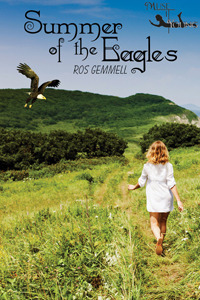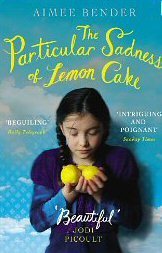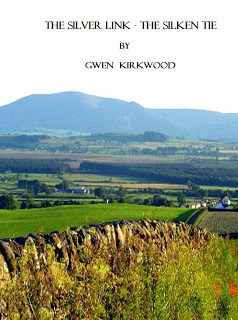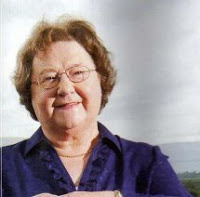Romy Gemmell's Blog, page 51
March 12, 2012
The Morning After the Weekend
Once again, we had a wonderful weekend at the Scottish Association of Writers Conference. Just imagine members of writing groups from all over Scotland getting together for workshops, seminars and competition adjudications. Not to mention the eating, serious chatting, after dinner speakers, laughter and fun. And of course the Saturday evening disco, or poetry penthouse - I think you'll probably guess which one I stayed at until 11.20pm!
More importantly, almost every writer who attends the weekend goes home more inspired and encouraged to continue writing and sending work out. I had to work for my bed and board this year by judging a competition and giving a talk, but it was a great pleasure to do so as I do love sharing information with other writers, and hopefully encouraging newer members to realise the possibilities available.
We were lucky to have Nicola Morgan judging the Competition for children's writing, and Cathy MacPhail as an entertaining and inspiring after dinner speaker - just two of the well-published authors sharing their expertise.
So, even if I yawn my way through today trying to catch up on sleep, writing and proofs, I can't wait until next March!
Rosemary
More importantly, almost every writer who attends the weekend goes home more inspired and encouraged to continue writing and sending work out. I had to work for my bed and board this year by judging a competition and giving a talk, but it was a great pleasure to do so as I do love sharing information with other writers, and hopefully encouraging newer members to realise the possibilities available.
We were lucky to have Nicola Morgan judging the Competition for children's writing, and Cathy MacPhail as an entertaining and inspiring after dinner speaker - just two of the well-published authors sharing their expertise.
So, even if I yawn my way through today trying to catch up on sleep, writing and proofs, I can't wait until next March!
Rosemary
Published on March 12, 2012 02:44
March 8, 2012
Happiness, Happiness...

Many thanks to bubbly blogging friend Patsy who has kindly passed on this lovely Sunshine Award to me - just what we need up here in Scotland after yesterday's sleet! It has come in a good week too. I'm not posting an author spotlight today as I'm off to our annual Scottish Association of Writers Weekend Conference tomorrow. As well as judging one of the short story competitions, I'm doing a workshop on the Sunday and have to finish preparing it to run off the handouts. Last minute as usual, almost.
So in light of this being a Sunshine Award, my random facts are all to do with what makes me happy.
1. Simple pleasures, and being an optimist as far as possible.
2. A walk beside the sea, or in the countryside.
3. An absorbing book or film.
4. Listening to music.
5. Dancing - of any kind.
6. Singing - at home, or in a church.
7. Reaching the end of writing a short story or novel.
8. Interesting old buildings.
9. Being with other writers at a conference or meeting.
10.Being with my family or friends.
Now I'd like to pass the award on to these sunny bloggers I enjoy visiting online:
Anita; Janice; Lindsay; Gilly; Jane and Ute
I'm planning to have a great weekend - hope you do too!
Rosemary
Published on March 08, 2012 01:39
March 5, 2012
I Have a Cover for Summer of the Eagles!
I'm so excited this morning as I've just received the cover art for my first tween book,
Summer of the Eagles
, which should be published in ebook soon. I thought I'd give a little background to the choosing of a cover on this blog, as well as posting the cover on Flights of Imagination, and I want to show it off! Since I've only ever had one novel published before, once again I was a bit nervous about what kind of cover this book would have, if it would suit the story, and if I would like it.

Well, I am honestly delighted with this cover. Kaytalin, the cover artist from MuseItUp Publishing who normally does the tween book covers, emailed me two options. Her design of the cover is envisioned partly from the synopsis of the book, and partly from the Cover Art Form we have to fill in with as much detail as possible. It's great that we have the chance to see the two options and to approve, or not, before publication.
This was my immediate preference of the two and I can't believe how well it portrays the storyline - it actually looks like the Scottish hill path of my imagination, and the eagle off to the side is perfect! Even the girl doesn't look too old and I much prefer that we only see her back view. I also love the bright colours as the story takes place in the summer of the title. It doesn't hint at the danger, or the fantasy element of the strange boy in the hills, but the blurb will do that job. The girl and the eagles are the main focus of the book.
I am a happy bunny this morning!
Rosemary

Well, I am honestly delighted with this cover. Kaytalin, the cover artist from MuseItUp Publishing who normally does the tween book covers, emailed me two options. Her design of the cover is envisioned partly from the synopsis of the book, and partly from the Cover Art Form we have to fill in with as much detail as possible. It's great that we have the chance to see the two options and to approve, or not, before publication.
This was my immediate preference of the two and I can't believe how well it portrays the storyline - it actually looks like the Scottish hill path of my imagination, and the eagle off to the side is perfect! Even the girl doesn't look too old and I much prefer that we only see her back view. I also love the bright colours as the story takes place in the summer of the title. It doesn't hint at the danger, or the fantasy element of the strange boy in the hills, but the blurb will do that job. The girl and the eagles are the main focus of the book.
I am a happy bunny this morning!
Rosemary
Published on March 05, 2012 01:15
March 1, 2012
Author Spotlight and Guest Post: Bill Kirton
A big welcome today to writer extraordinaire, Bill Kirton, who is based in the north of Scotland and writes very successfully in a variety of genres. You can read my interview (in 2010) with Bill here. I'm particularly delighted that the next book in his Jack Carston crime series,
Unsafe Acts
, is now available. In addition to the excellent story lines in this series, Carston's own moral viewpoint and work satisfaction are gradually changing with each novel, providing extra layers of interest for readers.
Bill kindly provided the following post about writing in different genres. But first, here's the blurb for his new novel.

Unsafe Acts
An offshore platform in the turbulent North Sea is a dangerous place…
…there's the isolation, the machinery and the constant battle with the whims of nature. For Ally Baxter, a safety officer on Falcon Alpha, those whims take a deadly turn. When his workmates decide he's gay, an evening ashore turns ugly as they indulge in some drunken queer-bashing. Later his body is found along the route the group followed.
For DCI Jack Carston, the case seems simple enough until a second murder is discovered. This time it's the prostitute Ally always visited - a young mother with a baby son. Complications mount as Carston, in addition to his investigations, has to deal with an inexperienced officer under his command and a disciplinary charge brought against Carston himself by a vindictive superior officer.
The obstacles keep piling up, but more is to come when he finds evidence of a plot to wreck the platform itself.
Unsafe Acts is available from Amazon (UK) and Amazon (US)
You can find more information about Bill on his website and blog.
Chasing the unexpected
Writing's a pleasure. Even if you can organise your time so that you can give regular slots, even whole days to it, it never feels as if it's a routine. The great French novelist Stendhal always preferred l'imprévu, the unexpected. His heroes and heroines sought and revelled in surprises, unpredictable experiences, accidental meetings and the like. So even if, every day, you sit at the same desk, adjust the same keyboard, switch on the same monitor (or, if you're a real writer, lick the tip of your stubby pencil and pull the sheet of paper towards you), you're confident that your characters will take you to unsuspected places.
The same is true of readers, but with a slight difference. They know they'll be taken out of their world but, quite often, they like the feeling of drifting into one with which they're familiar, and which is peopled by weel-kent individuals. They want to revisit Harry Potter and his friends, or read yet another Dick Francis adventure featuring horses and jockeys. And this can pose a problem because, in a way, it condemns you to meet their expectations. If they're used to you telling them about Chief Inspector Bloggs and his team in Auchtermuchty, they don't want to pick up one of your books and find themselves in a spaceship crewed by Klingons on its way to the radioactive outskirts of the Crab nebula. But what if that's where you fancy going? Do you indulge yourself and just sit watching the airlocks hiss open and shut? Or do you wave goodbye to the astronauts and trudge back into the Auchtermuchty nick?
I can't really say it's been a problem but I do feel the need to warn readers of the differences between my books. I've written five in my modern Scottish crime series, all featuring the same central characters. But I've also written a spoof crime/mystery, a historical crime which became a romance too, a fantasy novella about online role-playing games, a novel for children and plays and short stories about all sorts of other things. There are also the non-fiction books, but I don't think my fiction readers are likely to be fooled into straying into a series whose titles all begin with the word 'Brilliant'.
It's true that most of my books are crime-based, but that's because I'm fascinated by people and the bad – and good – things they're capable of. For me, the human psyche is far more mysterious than any geographical or extra-terrestrial setting. So, whether I'm writing about murders in today's Scotland, or figurehead carving in 1840, or following the absurdly extreme sociopathic antics of a policeman and a group of individuals who call themselves Eagle, Sparrow, Kestrel and the like, the process is the same. What's happening to these people as I write may make me laugh, admire or love them, feel distressed, be disgusted – in fact contribute in many different ways to that all-important surprise factor.
So am I saying there's no difference between writing romance, historical or modern crime, fantasy or satire? Well, yes. I always quote Isla Dewar's response to a question from an audience, 'You've got to give your characters room to dance'. If your characters dance for you, it doesn't matter who or where they are – they draw you to them, make you part of their world, however alien, and demand that you tell their stories. With a genre such as satire, it's maybe a little different because you're using them to make points about other things, so you're dealing with two levels of meaning, but I think that's true of all good writing anyway. Underneath the main story, there are always so many others to be told.
The really nice feeling comes when readers ask you when you're going to a write a sequel to a stand-alone book. It means they've entered its world and want to experience more of it. It's perhaps the biggest compliment you can get.
OK, that's enough for today. I wonder where I'll be taken tomorrow.
Thanks for that very interesting post, Bill.
 Bill Kirton was born in Plymouth, England but has lived in Aberdeen, Scotland for most of his life. He's been a university lecturer, presented TV programmes, written and performed songs and sketches at the Edinburgh Festival, and had many radio plays broadcast by the BBC and the Australian BC. He's written four books on study, writing and workplace skills in Pearson's 'Brilliant' series and his crime novels, Material Evidence, Rough Justice, The Darkness, Shadow Selves and the historical novel The Figurehead, set in Aberdeen in 1840, have been published in the UK and USA. His short stories have appeared in several anthologies and Love Hurts was chosen for the Mammoth Book of Best British Crime 2010.
Bill Kirton was born in Plymouth, England but has lived in Aberdeen, Scotland for most of his life. He's been a university lecturer, presented TV programmes, written and performed songs and sketches at the Edinburgh Festival, and had many radio plays broadcast by the BBC and the Australian BC. He's written four books on study, writing and workplace skills in Pearson's 'Brilliant' series and his crime novels, Material Evidence, Rough Justice, The Darkness, Shadow Selves and the historical novel The Figurehead, set in Aberdeen in 1840, have been published in the UK and USA. His short stories have appeared in several anthologies and Love Hurts was chosen for the Mammoth Book of Best British Crime 2010.
Photo by Sara Bain
Bill kindly provided the following post about writing in different genres. But first, here's the blurb for his new novel.

Unsafe Acts
An offshore platform in the turbulent North Sea is a dangerous place…
…there's the isolation, the machinery and the constant battle with the whims of nature. For Ally Baxter, a safety officer on Falcon Alpha, those whims take a deadly turn. When his workmates decide he's gay, an evening ashore turns ugly as they indulge in some drunken queer-bashing. Later his body is found along the route the group followed.
For DCI Jack Carston, the case seems simple enough until a second murder is discovered. This time it's the prostitute Ally always visited - a young mother with a baby son. Complications mount as Carston, in addition to his investigations, has to deal with an inexperienced officer under his command and a disciplinary charge brought against Carston himself by a vindictive superior officer.
The obstacles keep piling up, but more is to come when he finds evidence of a plot to wreck the platform itself.
Unsafe Acts is available from Amazon (UK) and Amazon (US)
You can find more information about Bill on his website and blog.
Chasing the unexpected
Writing's a pleasure. Even if you can organise your time so that you can give regular slots, even whole days to it, it never feels as if it's a routine. The great French novelist Stendhal always preferred l'imprévu, the unexpected. His heroes and heroines sought and revelled in surprises, unpredictable experiences, accidental meetings and the like. So even if, every day, you sit at the same desk, adjust the same keyboard, switch on the same monitor (or, if you're a real writer, lick the tip of your stubby pencil and pull the sheet of paper towards you), you're confident that your characters will take you to unsuspected places.
The same is true of readers, but with a slight difference. They know they'll be taken out of their world but, quite often, they like the feeling of drifting into one with which they're familiar, and which is peopled by weel-kent individuals. They want to revisit Harry Potter and his friends, or read yet another Dick Francis adventure featuring horses and jockeys. And this can pose a problem because, in a way, it condemns you to meet their expectations. If they're used to you telling them about Chief Inspector Bloggs and his team in Auchtermuchty, they don't want to pick up one of your books and find themselves in a spaceship crewed by Klingons on its way to the radioactive outskirts of the Crab nebula. But what if that's where you fancy going? Do you indulge yourself and just sit watching the airlocks hiss open and shut? Or do you wave goodbye to the astronauts and trudge back into the Auchtermuchty nick?
I can't really say it's been a problem but I do feel the need to warn readers of the differences between my books. I've written five in my modern Scottish crime series, all featuring the same central characters. But I've also written a spoof crime/mystery, a historical crime which became a romance too, a fantasy novella about online role-playing games, a novel for children and plays and short stories about all sorts of other things. There are also the non-fiction books, but I don't think my fiction readers are likely to be fooled into straying into a series whose titles all begin with the word 'Brilliant'.
It's true that most of my books are crime-based, but that's because I'm fascinated by people and the bad – and good – things they're capable of. For me, the human psyche is far more mysterious than any geographical or extra-terrestrial setting. So, whether I'm writing about murders in today's Scotland, or figurehead carving in 1840, or following the absurdly extreme sociopathic antics of a policeman and a group of individuals who call themselves Eagle, Sparrow, Kestrel and the like, the process is the same. What's happening to these people as I write may make me laugh, admire or love them, feel distressed, be disgusted – in fact contribute in many different ways to that all-important surprise factor.
So am I saying there's no difference between writing romance, historical or modern crime, fantasy or satire? Well, yes. I always quote Isla Dewar's response to a question from an audience, 'You've got to give your characters room to dance'. If your characters dance for you, it doesn't matter who or where they are – they draw you to them, make you part of their world, however alien, and demand that you tell their stories. With a genre such as satire, it's maybe a little different because you're using them to make points about other things, so you're dealing with two levels of meaning, but I think that's true of all good writing anyway. Underneath the main story, there are always so many others to be told.
The really nice feeling comes when readers ask you when you're going to a write a sequel to a stand-alone book. It means they've entered its world and want to experience more of it. It's perhaps the biggest compliment you can get.
OK, that's enough for today. I wonder where I'll be taken tomorrow.
Thanks for that very interesting post, Bill.
 Bill Kirton was born in Plymouth, England but has lived in Aberdeen, Scotland for most of his life. He's been a university lecturer, presented TV programmes, written and performed songs and sketches at the Edinburgh Festival, and had many radio plays broadcast by the BBC and the Australian BC. He's written four books on study, writing and workplace skills in Pearson's 'Brilliant' series and his crime novels, Material Evidence, Rough Justice, The Darkness, Shadow Selves and the historical novel The Figurehead, set in Aberdeen in 1840, have been published in the UK and USA. His short stories have appeared in several anthologies and Love Hurts was chosen for the Mammoth Book of Best British Crime 2010.
Bill Kirton was born in Plymouth, England but has lived in Aberdeen, Scotland for most of his life. He's been a university lecturer, presented TV programmes, written and performed songs and sketches at the Edinburgh Festival, and had many radio plays broadcast by the BBC and the Australian BC. He's written four books on study, writing and workplace skills in Pearson's 'Brilliant' series and his crime novels, Material Evidence, Rough Justice, The Darkness, Shadow Selves and the historical novel The Figurehead, set in Aberdeen in 1840, have been published in the UK and USA. His short stories have appeared in several anthologies and Love Hurts was chosen for the Mammoth Book of Best British Crime 2010.Photo by Sara Bain
Published on March 01, 2012 01:06
February 28, 2012
Short Stories: You Magazine (SA)
A couple of members on the Facebook Group - Bring back fiction to women's magazines - have been mentioning success with the South African magazine, 'You'. So I thought I'd investigate this as a possible market for short story writers.
They do have a website, with full guidelines for submitting stories. Obviously, it's always better to read a few stories from any magazine to get a feel for the type and tone of story they prefer. Since this is more difficult with a country so far away, the guidelines are the next best thing. They seem to favour contemporary stories, although they mention they would like to see more detective/crime stories.
Full up-to-date submission details are on the You website. Please note their format - no indents.
Good luck!
Rosemary
They do have a website, with full guidelines for submitting stories. Obviously, it's always better to read a few stories from any magazine to get a feel for the type and tone of story they prefer. Since this is more difficult with a country so far away, the guidelines are the next best thing. They seem to favour contemporary stories, although they mention they would like to see more detective/crime stories.
Full up-to-date submission details are on the You website. Please note their format - no indents.
Good luck!
Rosemary
Published on February 28, 2012 01:42
February 26, 2012
Appearing on New Zealand Blog

I'm delighted that the very first post about my forthcoming tween book, Summer of the Eagles, is now on Sue Perkins' blog in New Zealand. The novel for 10-14 years is due to be released in March 2012, but I don't have the cover yet so haven't been talking about it much so far.
I'm looking at some of my experiences that influenced the Setting, Characters and Subject Matter of the book. I'd love to see you there if you have time for a quick look at Sue's blog.
Rosemary
Published on February 26, 2012 02:02
February 23, 2012
Book Review: The Particular Sadness of Lemon Cake

I love those times of year when one of my family buys me a book that I've never heard of and I go on to discover a new author and a completely different type of novel. That's what happened with The Particular Sadness of Lemon Cake by Aimee Bender. I believe it was a Richard and Judy Book Choice in 2011 and I can't help wondering if it would have reached as many readers otherwise.
This is an astonishing novel, both in construction and content. Rose Edelstein's mother bakes her a lemon-chocolate cake for her 9th birthday and as soon as Rose bites into the slice of cake, she discovers an overwhelming 'gift' that will plague the rest of her life. For Rose can taste every emotion that goes into the baking and cooking of food - any food, anywhere. And with that gift comes the knowledge that her mother, father and brother are dealing with their own particular problems.
Not quite as linear as some novels, it often dips into different scenes in Rose's life and the dialogue has no enclosing quote marks, yet I was never confused about who is speaking. The beautiful writing and magic-realism qualities of the novel are a joy to read, while Rose's own journey into adulthood is often amusing, wise and poignant. The almost non-existent relationship with her strange brother who disappears at intervals culminates in a touching revelation that only Rose will ever understand.
Although it might divide readers' opinions, I have the feeling this is one book that will remain in the mind far longer than usual, and it's one which I'll want to read again with even more understanding and appreciation.
Rosemary
Published on February 23, 2012 01:32
February 20, 2012
Novel Competitions

I thought I'd highlight this great contest, in case anyone is not aware of it yet. Novelicious has joined forces with Avon (Harper Collins) and Books and the City (Simon & Schuster UK) in their search for a new Chic Lit novelist. Two awards are on offer: The People's Choice and the Books and the City Choice. The winner of both will receive a full manuscript critique, among other prizes.
All you have to do is email the first 3000 words of your Chic Lit novel to the address on the novelicious website, where you will also find full details of entry and prizes. Please note this competition is only for UK and Ireland residents, and entrants should not be under contract with a publisher or agent. Closing date is 3rd April 2012.

The Rose and Crown imprint of Sunpenny Publishing is also running a new novel competition at the moment, for intelligent romance with a Christian inspirational flavour. There is quite a hefty entry fee of £18 for this one, but the winners are guaranteed publication plus a monetary prize. Entries can be from anywhere in the world and from new or published writers. The entered novel should not have been previously published.
Email a synopsis and the full manuscript to the address on the Rose and Crown website, where you will find full details. Closing date is 31st March 2012.
Good luck if you enter either!
* If anyone remembers paper dressing-up dolls (like Bunty), please pop over to my Flights of Imagination blog and tell me about it!
Rosemary
Published on February 20, 2012 01:19
February 16, 2012
Author Spotlight: Gwen Kirkwood
I am delighted to welcome the very interesting and helpful writer, Gwen Kirkwood, to my blog today. Gwen has a long list of publications, and her wonderful novels (and a few novellas) are rich with family detail in a country and farming background, taking readers into an absorbing tale. She lives in southern Scotland and her beautiful surroundings provide a backdrop to many of her stories. As an experienced writer, Gwen is always willing to pass on some of her knowledge and encouragement to newer writers, but she is one of the most modest successful writers I have the privilege of knowing.
The Silver Link - The Silken Tie is one of Gwen's print novels, now available on Kindle.

BLURB
Elspeth is the last of the Elliots of Everanlea. She shares her grandmother's love of their Scottish heritage and she is determined to preserve it, but running a large hill farm presents problems, and a danger neither of them could have envisaged.
Elspeth is dismayed when her father advises her to sell out to her neighbour, Robin Armstrong, for feuds between the Elliots and the Armstrongs of Arnhill are legendary. Even if she wanted to sell, could she bear to sell to the man she would never forget, or forgive, for humiliating her in front of her friends when she was sixteen? Besides her grandmother has engaged a manager, the charming and handsome, Howard Elliot. He appears very eligible, and Elspeth is reluctant to question her beloved grandmother's opinions, but Howard is unfamiliar with the ways of Border shepherds.
In spite of their stormy relationship, Robin Armstrong offers his help – but he admits he has ulterior motives. So can she trust him? Or should she continue to rely on Howard?
The Silver Link - The Silver Tie is available from Amazon (UK) and Amazon (US)
Welcome to the Reading and Writing blog, Gwen. Many thanks for answering these questions and giving us some excellent insight into the farming world.
Thank you Rosemary for inviting me to your own very popular blog and for generously giving your time to share this with me today.
How much of your own farming background goes into your novels?
Some people are extremely good at researching facts and scenes about places they have never seen in reality. I am neither confident nor comfortable with this so I follow the advice "write about what you know". In my case this is farming as I have lived on farms almost all my life. I am aware that if readers want to learn about a subject they will choose a text book, not a fictional story, so my novels depend on strong characters and I try to keep farming and country life as an authentic background.
Most writers agree that research, or knowledge, should be like an iceberg - a solid base but only an intriguing peak in evidence. I am constantly trying to think of a different event or situation so that my readers will not be bored with farming details as I have some loyal followers who have read all of my books. Both my agent and editor have asked for more farming details on occasion but I do not like situations to be contrived. They must fit naturally into the character's life and work. It may be the death of a favourite horse, the tragedy of a foot and mouth outbreak, or the satisfaction of helping the birth of a calf from a favourite cow, or a life and death rescue from an intelligent dog, as in A Home of Our Own. Whatever it is, it will affect one of the main characters and if I have written it well enough the reader will share in his/her joy or sorrow.
I enjoy history too and often incorporate real life events when they occur at the correct time in a character's life so I keep a careful note of dates and ages, especially when writing a series which covers three or four generations. The first Fairlyden saga starts pre 1900 and the fourth takes us to the Second World War. The Home series starts at the end of the war and is continuing. Farming didn't change much during my grandparents' lifetime with horses and hand milking and a mixture of animals and crops. The war brought tractors. Milking machines took over from the women milking by hand.
In one book I tried to show the desperate shortage of food after the war and farmers being compelled to plough up grassland, whether or not it suited them. Gradually farms have amalgamated and this affects some of my characters as they struggle to find the money for bigger units. More farmers specialise in only one or two types of animal now, and some only grow crops and do not keep any animals - though not in my books. Last year my son installed robots so the cows can come to get milked by themselves whenever they feel the need. This is more natural as calves suckle regularly. The book I'm writing now is the first I have written up to present day. I shall introduce milk robots as a new slant, but they'll also cause friction between some of the characters.
Has farming changed a lot over the years since you started writing?
It is not only farming which has changed. My early romances were written in the 1980s and are too short to have much farming detail. The Silver Link - The Silken Tie is set on a sheep farm near Langholm and if mobile phones had been in use then they would have changed the whole plot.
Incidentally, I often use the names of actual towns to fix the area but I never use real characters and I change the names of villages and farms in case local people try to attach identities to my characters.
You began your writing career the traditional way – do you think e-books are a good idea?
Over the years I have had a lot of support from my local papers and libraries but on the whole I don't enjoy the marketing which most publishers expect from authors these days. Marketing and utilising social media are essentials for any authors who are self-publishing, either in book format or digitally. Although I still prefer the sight and feel of a real book I intend to make more of my books available for digital E-readers. I think (and hope) it will keep them available. Paper books go out of print in a relatively short time due to economics, cost of paper and storage and general outlay, unless an author is lucky enough to write bestsellers which stay in continual demand.
Do you have a view of the countryside from your writing place?
When I look out of my windows and see the countryside on all around me, and watch the changing seasons, I think how lucky I am, but I keep my desk away from the window, partly to avoid distraction, but also because I do not like the sun shining on my computer screen.
Could you pass on some wisdom, or tips to newer writers, please
Well what works for one person may not work for another. I am not a plotter so I would say get writing and keep writing. Do edit diligently later though. My stories depend on characters. You only get to know them as they, and the story, develop. It is like getting to know new people in a village. The joy of writing is you are in control and you can do what you like with them and their situations. Later, when you know them better, you can strengthen them or change their name or hair colour or whatever you wish. I enjoy this editing stage but I know many writers hate it. Remember there is nothing to love, hate or change if you don't get on with writing the story.
Hint for busy mums with lots of interruptions. Before you log off try to jot down a few words to remind you of your train of thought so that you can get straight into the next writing session when the opportunity arises.
Thank you so much for those wise and interesting answers, Gwen!
You can find Gwen's books on her website and further information on her Blog and as one of the five authors on Novel Points of View.
(Sagas grouped in their series)
1. Dreams of Home - Severn House
2. A Home of our Own - Severn House
3. Heart of the Home - Severn House
4. Another Home - Another Love (due May 2012) Robert Hale Ltd
1. Secrets in the Heather - Severn House
2. Call of the Heather - Severn House
3. When the Heather Blooms - Severn House
1. The Laird of Lochandee - Severn House
2. A Tangled Web - Severn House
3. Children of the Glens - Severn House
4. Home to the Glen - Severn House
1. Fairlyden - Headline
2. Mistress of Fairlyden - Headline
3. The Family at Fairlyden - Headline
4. Fairlyden at War - Headline
The Fairlyden series are out of print but will become available as audio books at libraries and from Audible during the next 18 months and as digital E-books as soon as I can upload them.
Shorter single romance novels
These were originally written and published under Lynn Granger but I have now uploaded them to Amazon and Smashwords as e-books under my own name of Gwen Kirkwood
Lonely is the Valley (available soon)
The Wary Heart
The Laird of Lochvinnie
The Silver Link-The Silken Tie
Written on the Wind
A New Beginning (title of printed version was Shattered Dreams)

Gwen Kirkwood is supposed to be retired but she can't imagine a life without writing. She has three adult children so with her son farming over the garden wall, and one daughter with an ice cream parlour only a mile in the other direction, she sees a lot of her grandchildren. "They keep me on my toes and up to date with life," she says. She also enjoys local history, gardening and reading.
The Silver Link - The Silken Tie is one of Gwen's print novels, now available on Kindle.

BLURB
Elspeth is the last of the Elliots of Everanlea. She shares her grandmother's love of their Scottish heritage and she is determined to preserve it, but running a large hill farm presents problems, and a danger neither of them could have envisaged.
Elspeth is dismayed when her father advises her to sell out to her neighbour, Robin Armstrong, for feuds between the Elliots and the Armstrongs of Arnhill are legendary. Even if she wanted to sell, could she bear to sell to the man she would never forget, or forgive, for humiliating her in front of her friends when she was sixteen? Besides her grandmother has engaged a manager, the charming and handsome, Howard Elliot. He appears very eligible, and Elspeth is reluctant to question her beloved grandmother's opinions, but Howard is unfamiliar with the ways of Border shepherds.
In spite of their stormy relationship, Robin Armstrong offers his help – but he admits he has ulterior motives. So can she trust him? Or should she continue to rely on Howard?
The Silver Link - The Silver Tie is available from Amazon (UK) and Amazon (US)
Welcome to the Reading and Writing blog, Gwen. Many thanks for answering these questions and giving us some excellent insight into the farming world.
Thank you Rosemary for inviting me to your own very popular blog and for generously giving your time to share this with me today.
How much of your own farming background goes into your novels?
Some people are extremely good at researching facts and scenes about places they have never seen in reality. I am neither confident nor comfortable with this so I follow the advice "write about what you know". In my case this is farming as I have lived on farms almost all my life. I am aware that if readers want to learn about a subject they will choose a text book, not a fictional story, so my novels depend on strong characters and I try to keep farming and country life as an authentic background.
Most writers agree that research, or knowledge, should be like an iceberg - a solid base but only an intriguing peak in evidence. I am constantly trying to think of a different event or situation so that my readers will not be bored with farming details as I have some loyal followers who have read all of my books. Both my agent and editor have asked for more farming details on occasion but I do not like situations to be contrived. They must fit naturally into the character's life and work. It may be the death of a favourite horse, the tragedy of a foot and mouth outbreak, or the satisfaction of helping the birth of a calf from a favourite cow, or a life and death rescue from an intelligent dog, as in A Home of Our Own. Whatever it is, it will affect one of the main characters and if I have written it well enough the reader will share in his/her joy or sorrow.
I enjoy history too and often incorporate real life events when they occur at the correct time in a character's life so I keep a careful note of dates and ages, especially when writing a series which covers three or four generations. The first Fairlyden saga starts pre 1900 and the fourth takes us to the Second World War. The Home series starts at the end of the war and is continuing. Farming didn't change much during my grandparents' lifetime with horses and hand milking and a mixture of animals and crops. The war brought tractors. Milking machines took over from the women milking by hand.
In one book I tried to show the desperate shortage of food after the war and farmers being compelled to plough up grassland, whether or not it suited them. Gradually farms have amalgamated and this affects some of my characters as they struggle to find the money for bigger units. More farmers specialise in only one or two types of animal now, and some only grow crops and do not keep any animals - though not in my books. Last year my son installed robots so the cows can come to get milked by themselves whenever they feel the need. This is more natural as calves suckle regularly. The book I'm writing now is the first I have written up to present day. I shall introduce milk robots as a new slant, but they'll also cause friction between some of the characters.
Has farming changed a lot over the years since you started writing?
It is not only farming which has changed. My early romances were written in the 1980s and are too short to have much farming detail. The Silver Link - The Silken Tie is set on a sheep farm near Langholm and if mobile phones had been in use then they would have changed the whole plot.
Incidentally, I often use the names of actual towns to fix the area but I never use real characters and I change the names of villages and farms in case local people try to attach identities to my characters.
You began your writing career the traditional way – do you think e-books are a good idea?
Over the years I have had a lot of support from my local papers and libraries but on the whole I don't enjoy the marketing which most publishers expect from authors these days. Marketing and utilising social media are essentials for any authors who are self-publishing, either in book format or digitally. Although I still prefer the sight and feel of a real book I intend to make more of my books available for digital E-readers. I think (and hope) it will keep them available. Paper books go out of print in a relatively short time due to economics, cost of paper and storage and general outlay, unless an author is lucky enough to write bestsellers which stay in continual demand.
Do you have a view of the countryside from your writing place?
When I look out of my windows and see the countryside on all around me, and watch the changing seasons, I think how lucky I am, but I keep my desk away from the window, partly to avoid distraction, but also because I do not like the sun shining on my computer screen.
Could you pass on some wisdom, or tips to newer writers, please
Well what works for one person may not work for another. I am not a plotter so I would say get writing and keep writing. Do edit diligently later though. My stories depend on characters. You only get to know them as they, and the story, develop. It is like getting to know new people in a village. The joy of writing is you are in control and you can do what you like with them and their situations. Later, when you know them better, you can strengthen them or change their name or hair colour or whatever you wish. I enjoy this editing stage but I know many writers hate it. Remember there is nothing to love, hate or change if you don't get on with writing the story.
Hint for busy mums with lots of interruptions. Before you log off try to jot down a few words to remind you of your train of thought so that you can get straight into the next writing session when the opportunity arises.
Thank you so much for those wise and interesting answers, Gwen!
You can find Gwen's books on her website and further information on her Blog and as one of the five authors on Novel Points of View.
(Sagas grouped in their series)
1. Dreams of Home - Severn House
2. A Home of our Own - Severn House
3. Heart of the Home - Severn House
4. Another Home - Another Love (due May 2012) Robert Hale Ltd
1. Secrets in the Heather - Severn House
2. Call of the Heather - Severn House
3. When the Heather Blooms - Severn House
1. The Laird of Lochandee - Severn House
2. A Tangled Web - Severn House
3. Children of the Glens - Severn House
4. Home to the Glen - Severn House
1. Fairlyden - Headline
2. Mistress of Fairlyden - Headline
3. The Family at Fairlyden - Headline
4. Fairlyden at War - Headline
The Fairlyden series are out of print but will become available as audio books at libraries and from Audible during the next 18 months and as digital E-books as soon as I can upload them.
Shorter single romance novels
These were originally written and published under Lynn Granger but I have now uploaded them to Amazon and Smashwords as e-books under my own name of Gwen Kirkwood
Lonely is the Valley (available soon)
The Wary Heart
The Laird of Lochvinnie
The Silver Link-The Silken Tie
Written on the Wind
A New Beginning (title of printed version was Shattered Dreams)

Gwen Kirkwood is supposed to be retired but she can't imagine a life without writing. She has three adult children so with her son farming over the garden wall, and one daughter with an ice cream parlour only a mile in the other direction, she sees a lot of her grandchildren. "They keep me on my toes and up to date with life," she says. She also enjoys local history, gardening and reading.
Published on February 16, 2012 01:34
February 14, 2012
A Rose and Poem for Valentine's Day
I couldn't let Valentine's Day pass without a mention, so as an unashamed romantic, I'm dedicating this post to all my lovely followers, whether romantic or not!
Valentine's Day is the traditional time for flowers, especially roses, and preferably red. Of all flowers, the rose is perhaps the most symbolic, often representing purity, perfection, love, marriage or death. Its essence has been well used in love potions, perfumes and cosmetics. And, of course, legends abound.
According to a charming medieval legend, the first roses made a miraculous appearance in order to save a 'fayre maiden' who had been sentenced to death by burning. Falsely accused, she prayed for deliverance and the fire subsequently went out. The logs which were already burning became red roses and the unlit logs became white roses.

The red rose evidently was the sacred flower of Venus, the Roman goddess of love, and is a symbol of love and beauty. A dozen red roses epitomizes romantic love, especially on St Valentine's Day, while a single red rose usually means "I love you." The 18th century Scottish poet, Robert Burns, talks of constant love in his song, My Love is like a Red, Red Rose. In some countries, the red rose means marriage, and in Christianity it is sometimes symbolic of Christ's shed blood.

Often a symbol of purity and secrecy, the white rose represents water and is the flower of moonlight. In parts of Scotland, a white rose blooming in autumn was thought to herald an early death, but a white rose bud symbolized a girl too young to love. In a lovely custom in Saxon times, red and white petals were showered on newly weds to represent their union of passion (red roses) and purity (white roses).
This is one of the medieval poems in an old collection I have, and it sums up that wonderful closeness a man and wife (hopefully) retain over long years together.
Ausonius
To His Wife
Love, let us live as we have lived, nor loseThe little names that were the first night's grace,And never come the day that sees us old,I still your lad, and you my little lass.Let me be older thank old Nestor's years,And you the Sibyl, if we heed it not.What should we know, we two, of ripe old age?We'll have its richness, and the years forgot.

Valentine's Day is the traditional time for flowers, especially roses, and preferably red. Of all flowers, the rose is perhaps the most symbolic, often representing purity, perfection, love, marriage or death. Its essence has been well used in love potions, perfumes and cosmetics. And, of course, legends abound.
According to a charming medieval legend, the first roses made a miraculous appearance in order to save a 'fayre maiden' who had been sentenced to death by burning. Falsely accused, she prayed for deliverance and the fire subsequently went out. The logs which were already burning became red roses and the unlit logs became white roses.

The red rose evidently was the sacred flower of Venus, the Roman goddess of love, and is a symbol of love and beauty. A dozen red roses epitomizes romantic love, especially on St Valentine's Day, while a single red rose usually means "I love you." The 18th century Scottish poet, Robert Burns, talks of constant love in his song, My Love is like a Red, Red Rose. In some countries, the red rose means marriage, and in Christianity it is sometimes symbolic of Christ's shed blood.

Often a symbol of purity and secrecy, the white rose represents water and is the flower of moonlight. In parts of Scotland, a white rose blooming in autumn was thought to herald an early death, but a white rose bud symbolized a girl too young to love. In a lovely custom in Saxon times, red and white petals were showered on newly weds to represent their union of passion (red roses) and purity (white roses).
This is one of the medieval poems in an old collection I have, and it sums up that wonderful closeness a man and wife (hopefully) retain over long years together.
Ausonius
To His Wife
Love, let us live as we have lived, nor loseThe little names that were the first night's grace,And never come the day that sees us old,I still your lad, and you my little lass.Let me be older thank old Nestor's years,And you the Sibyl, if we heed it not.What should we know, we two, of ripe old age?We'll have its richness, and the years forgot.
Published on February 14, 2012 02:11
Romy Gemmell's Blog
- Romy Gemmell's profile
- 5 followers
Romy Gemmell isn't a Goodreads Author
(yet),
but they
do have a blog,
so here are some recent posts imported from
their feed.



